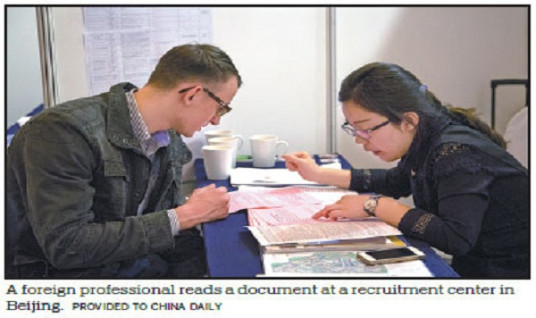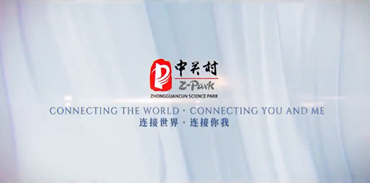Overseas investors targeted in action plan for high-tech sector

Beijing will open its science and technology sector wider to attract foreign investment, according to the city's Three-Year Action Plan for S&T Reform and Opening-up unveiled in August.
The plan lists 15 measures in three main areas: accelerating the clustering of high-end S&T resources in Beijing; strengthening international S&T cooperation and exchanges; and shaping a more open environment for innovation.
"Beijing will offer high-caliber overseas talent hired by local tech companies fast tracks to apply for visas. Those who have foreigner's permanent resident identity cards will be treated the same way Chinese residents are treated when starting their S&T businesses," said Wang Jianxin, an official with the Beijing Science and Technology Commission.
He said that the Zhongguancun Award for International Cooperation will be set up to reward overseas professionals who have made great contributions to the city's scientific and technological innovations.
Beijing will give multinational companies incentives to establish research and development centers here. Top scientists in fields such as brain sciences, artificial intelligence and nanotechnologies are welcome, Wang added.
Some tech firms are expected to have an extended period for the temporary admission of eligible R&D testing vehicles and tax deductions.
The plan will pave the way for greater international cooperation on S&T projects. For example, Beijing is about to work with countries involved in the Belt and Road Initiative to set up incubators, parks and talent training bases overseas.
"Beijing will also strengthen international cooperation on intellectual property. It will support domestic enterprises in setting up R&D institutions overseas with a global IP architecture," Wang said. The city is speeding up the rollout of applications and services based on technologies like AI, 5G, big data, cloud computing, blockchain, life sciences, frontier materials, new energy and robotics by the creation of policies on technology transfer in Beijing, according to the plan.
To help expats work and live well in Beijing, the city plans to set up an information service platform and a one-stop service hall for them.
In such places, expats are able to apply for and get their working permits, residence permits and permanent residency.
"They can use apps, WeChat services and microblogs to stay informed on the latest policies and information in multiple languages," Wang added.
Yang Renquan, spokesman of the commission, told a news conference on Aug 22 that Beijing, as the national scientific and technological innovation center, has entered a new stage of high-quality development.
"The investment in S&T has increased by a large margin, from 4.18 billion yuan in 1996 to 157.97 billion yuan in 2017, a 36.8-fold increase.
The proportion of basic research investment rose steadily from 11.83 percent in 2012 to about 15 percent now, which surpasses some developed countries such as Japan and South Korea," Yang said.

